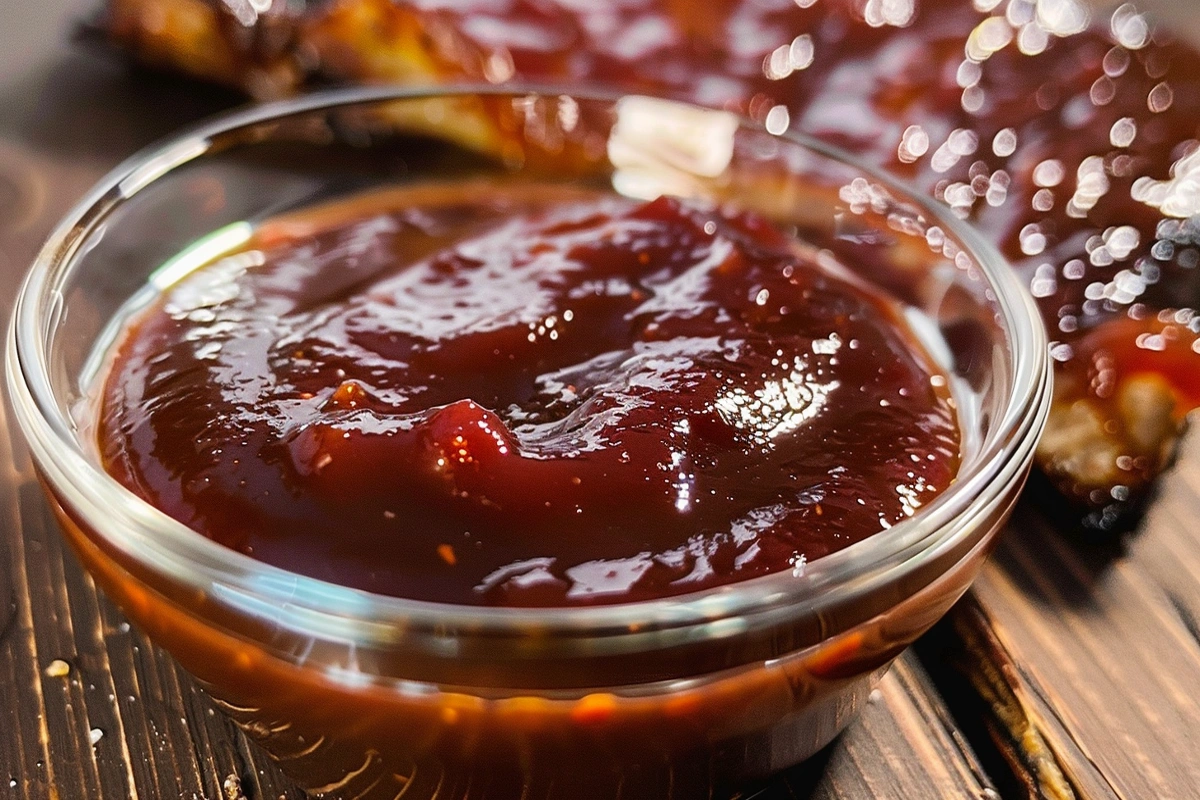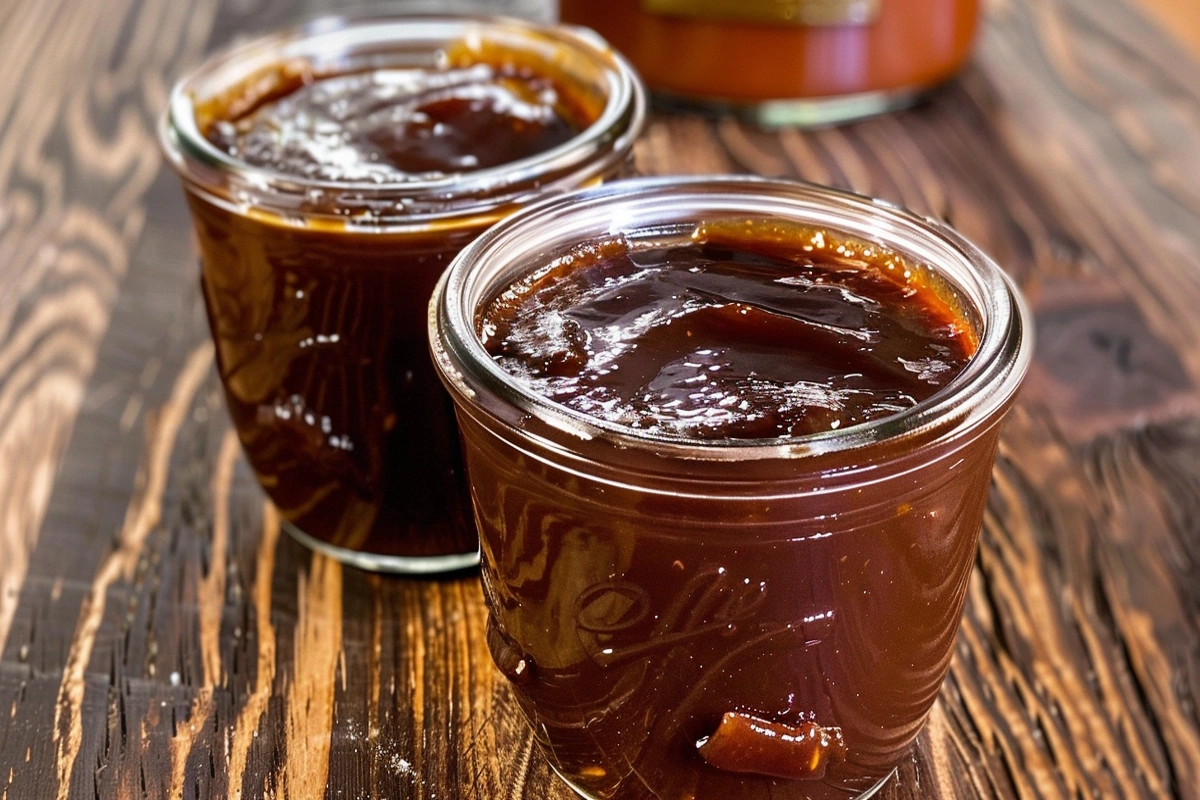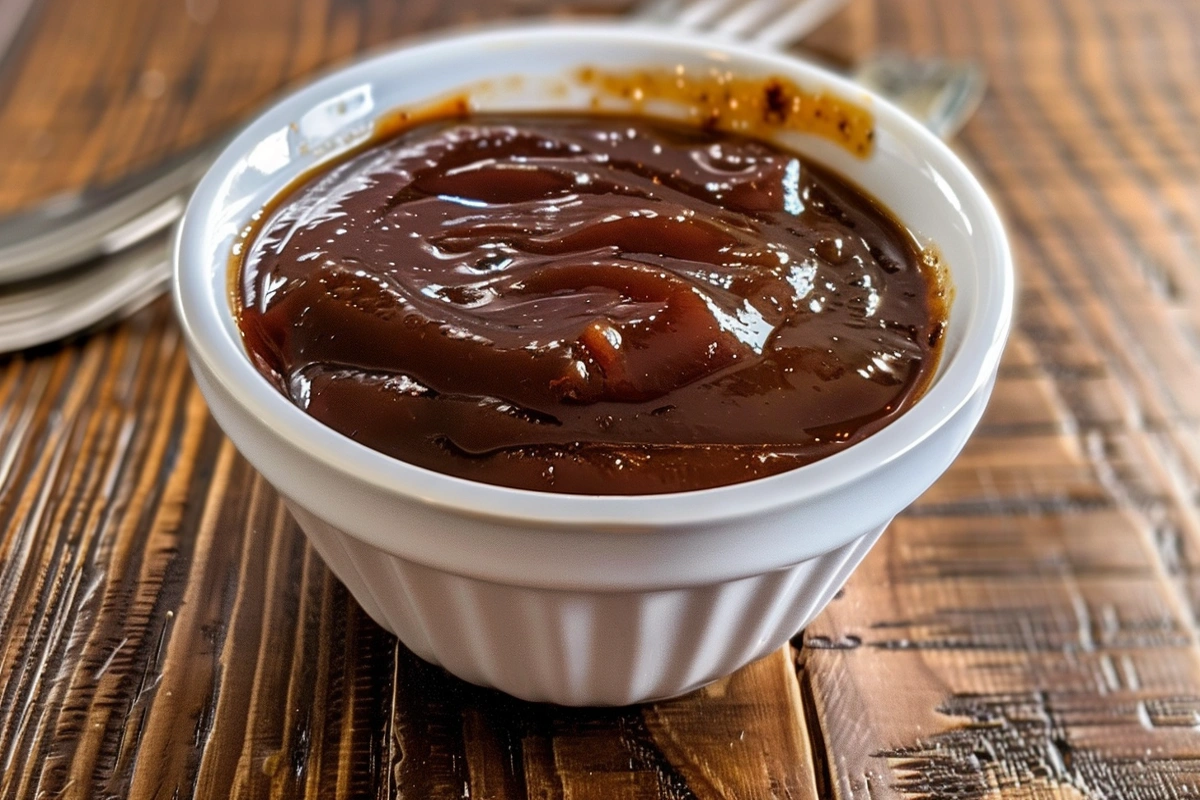Barbecue sauce is a beloved condiment that brings a delicious combination of sweet, tangy, and smoky flavors to grilled and smoked foods. While the taste of BBQ sauce can vary widely depending on the region, most sauces share a few core ingredients that define their flavor profile. Whether you’re a backyard griller or an aspiring pitmaster, understanding the basic components of BBQ sauce is essential to mastering the art of barbecue.
This guide will explore the key ingredients that make up a BBQ sauce, discuss regional variations, provide tips for making your own sauce at home, and highlight some common mistakes to avoid. Additionally, we’ll cover pairing suggestions for different meats and offer some healthier alternatives if you want to keep your BBQ sauce a bit lighter.
What Makes Up the Basic Components of BBQ Sauce?
BBQ sauce is typically made up of four main elements:
- A Base: Usually a tomato product like ketchup, tomato paste, or tomato sauce forms the foundation.
- Sweeteners: Ingredients like brown sugar, molasses, honey, or maple syrup are commonly used to add sweetness and depth.
- Acids: Vinegar, mustard, or lemon juice provides the necessary tanginess to balance the sweetness.
- Spices & Seasonings: Paprika, garlic powder, onion powder, black pepper, and cayenne pepper are often included to add complexity and enhance the flavor.
These components combine to create a harmonious balance of sweet, tangy, spicy, and savory flavors. Depending on the ratios and additions, BBQ sauce can take on many forms, from thin and tangy to thick and sweet.
1. The Tomato Base
The base is what gives BBQ sauce its body and texture. Most commonly, the base is made from a tomato product, such as:
- Ketchup: This is a popular base because it’s already seasoned and sweetened, providing a good foundation.
- Tomato Paste: It’s thicker and more concentrated, giving a robust tomato flavor without extra liquid.
- Tomato Sauce: Thinner than ketchup, it provides a lighter consistency.
The type of tomato base used significantly influences the final texture and flavor of the sauce.
2. Sweeteners
Sweetness is a defining characteristic of many BBQ sauces, especially in Kansas City-style sauces. The most common sweeteners include:
- Brown Sugar: This imparts a deep, molasses-like sweetness.
- Honey: Adds a lighter, floral sweetness.
- Molasses: Offers a rich, almost bitter sweetness that can balance out acidic components.
- Maple Syrup: Brings a unique, complex sweetness and works well in fruit-based BBQ sauces.
The choice of sweetener will impact both the flavor and texture, giving you control over the balance between sweet and savory.
3. Acids
Acidity is a critical component in BBQ sauce, as it cuts through the richness and balances the sweetness. The primary acids used are:
- Vinegar: Apple cider, white, or balsamic vinegars add a sharp, tangy bite.
- Mustard: Yellow or Dijon mustard introduces a mild acidity and a bit of heat.
- Lemon Juice: Bright and fresh, it can lighten the sauce and add a citrusy note.
The type and amount of acid used will determine how tangy the sauce is, which can vary greatly across different BBQ styles.
4. Spices & Seasonings
Spices and seasonings are where BBQ sauce can truly become unique. A basic spice mix might include:
- Paprika: Adds a mild, sweet heat.
- Garlic Powder: Gives a deep, savory flavor.
- Onion Powder: Adds a subtle sweetness and depth.
- Cayenne Pepper: Brings the heat—use sparingly unless you want a very spicy sauce.
- Black Pepper: Enhances the overall flavor with a bit of sharpness.
For more complex sauces, you can add cumin, chili powder, ginger, or even allspice. These ingredients help create regional distinctions and personal touches.
Regional Variations of BBQ Sauce

Barbecue is a deeply regional cuisine, and the style of sauce can vary dramatically from one area to another. Here are some of the most well-known styles:
1. Carolina Style BBQ Sauce
Carolina-style sauces are known for their vinegar base, giving them a tangy and slightly sharp flavor profile. They often use minimal sugar and focus on enhancing the flavor of pork, particularly pulled pork.
- Eastern Carolina Style: Made with just vinegar, salt, and red pepper flakes, it’s light and tangy.
- Western Carolina Style: Adds ketchup to the vinegar base for a sweeter, thicker sauce.
2. Kansas City Style BBQ Sauce
The quintessential BBQ sauce that most people think of—Kansas City-style sauce is thick, sweet, and tomato-based. It uses generous amounts of brown sugar and molasses, making it perfect for slathering on ribs or chicken.
3. Texas Style BBQ Sauce
Texas is known for its beef, and the sauces here are typically spicy and bold. A Texas-style sauce is usually thinner, with a tomato and vinegar base, and includes spices like chili powder and cumin to complement the flavor of beef brisket.
4. Alabama White Sauce
This mayonnaise-based sauce is a departure from the traditional tomato or vinegar bases. Alabama white sauce is tangy, creamy, and often used as a finishing sauce for smoked chicken or turkey.
5. Memphis Style BBQ Sauce
Memphis-style BBQ sauce is tomato and vinegar-based but has a balanced blend of sweetness and tanginess. It’s typically thinner than Kansas City-style but more complex than Carolina sauces, making it versatile for ribs and pulled pork.
How to Make Your Own BBQ Sauce
Making your own BBQ sauce at home allows you to tailor the flavors to your liking. Here’s a step-by-step guide:
Step 1: Choose Your Base
Start with 1 cup of your preferred tomato base—ketchup, tomato paste, or tomato sauce. If you want a thinner consistency, go with tomato sauce; for a thicker, richer sauce, use tomato paste.
Step 2: Add Sweetness
Add 1/4 cup of brown sugar, honey, or molasses. Adjust according to your sweetness preference. If you want a lighter sweetness, use honey or maple syrup.
Step 3: Balance with Acid
Add 1/4 cup of apple cider vinegar or white vinegar. For a tangier sauce, increase the amount of vinegar slightly.
Step 4: Spice It Up
Add 1 tablespoon each of garlic powder, onion powder, smoked paprika, and black pepper. Adjust the heat with a pinch of cayenne pepper.
Step 5: Simmer and Taste
Simmer the sauce over low heat for 15-20 minutes, stirring occasionally. Taste and adjust the seasoning as needed.
Step 6: Store and Serve
Once cooled, store in an airtight container in the refrigerator for up to two weeks. Serve with grilled meats, as a marinade, or even as a dipping sauce.
Common Mistakes to Avoid When Making BBQ Sauce
Even with the simplest recipes, there are a few common pitfalls to avoid:
1. Using Too Much Sugar
Overloading your sauce with sugar can make it overly sweet and cloying. If your sauce tastes too sweet, add more vinegar or a squeeze of lemon juice to balance it out.
2. Adding All the Spices at Once
Start with a small amount of each spice and build up. This approach allows you to fine-tune the flavor rather than overwhelming the sauce.
3. Not Cooking It Long Enough
Simmering allows the flavors to meld together and the sauce to thicken. Don’t rush the process; a good BBQ sauce needs time to develop.
4. Ignoring the Texture
A good BBQ sauce should be thick enough to coat the meat without running off. Adjust the texture by simmering longer or adding a thickener like cornstarch.
Pairing BBQ Sauces with Different Meats
Choosing the right BBQ sauce can elevate the flavor of any meat:
- Beef: Use a Texas-style BBQ sauce with a touch of heat and smokiness.
- Pork: Carolina-style vinegar-based sauces work well to cut through the richness of pork.
- Chicken: A sweet and mild Kansas City-style sauce complements the lighter flavor of chicken.
- Seafood: For delicate meats like fish or shrimp, opt for a fruit-based BBQ sauce.
Healthier Alternatives for BBQ Sauce
If you’re looking to cut down on sugar or sodium, consider these options:
- Natural Sweeteners: Use pureed dates or unsweetened applesauce instead of refined sugars.
- Low-Sodium Options: Replace salt with low-sodium soy sauce or coconut aminos.
- Healthier Fats: Swap out butter or oil with avocado or nut-based oils.
For more healthy recipe ideas, check out this 3-ingredient BBQ sauce recipe that uses only three ingredients to achieve a balanced flavor.
FAQs About What Are the Basic Components of BBQ Sauce?
What Makes a Good BBQ Sauce?
A good BBQ sauce should have a balanced profile of sweet, tangy, and savory flavors. It should complement, not overpower, the meat.
Can You Freeze BBQ Sauce?
Yes, you can freeze BBQ sauce for up to three months. Just make sure to thaw it in the refrigerator before using.
How Do I Make My BBQ Sauce Thicker?
Simmer the sauce longer, or add a slurry of cornstarch and water.
Can BBQ Sauce Be Used as a Marinade?
Absolutely! The sweet, tangy, and savory flavors of BBQ sauce make it an excellent marinade for most meats.
By understanding the basic components of BBQ sauce and experimenting with different combinations, you can create a sauce that’s perfectly tailored to your taste. Whether you prefer a sweet Kansas City-style or a spicy Texas sauce, mastering these basics will elevate your barbecue game.
Conclusion


